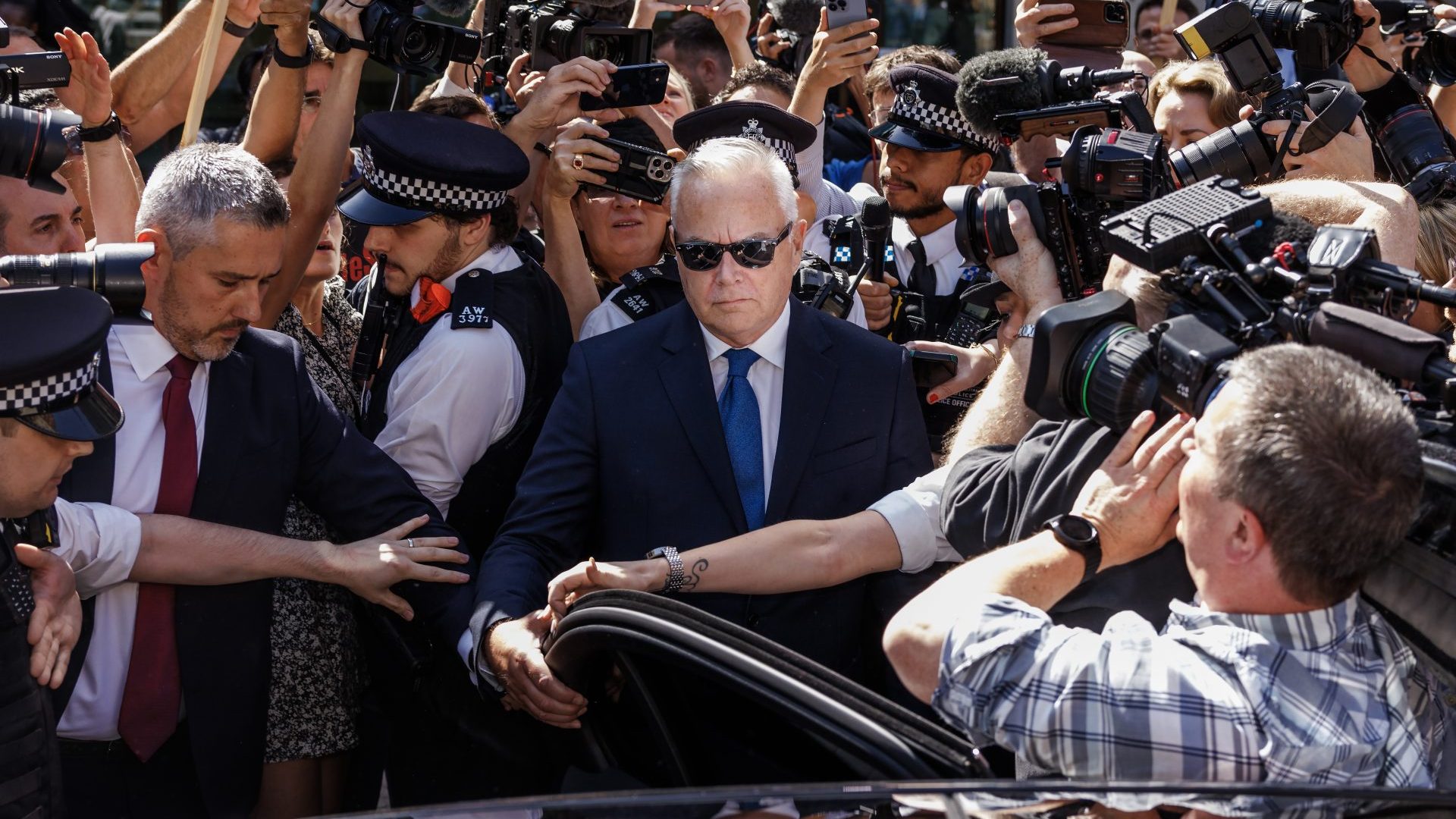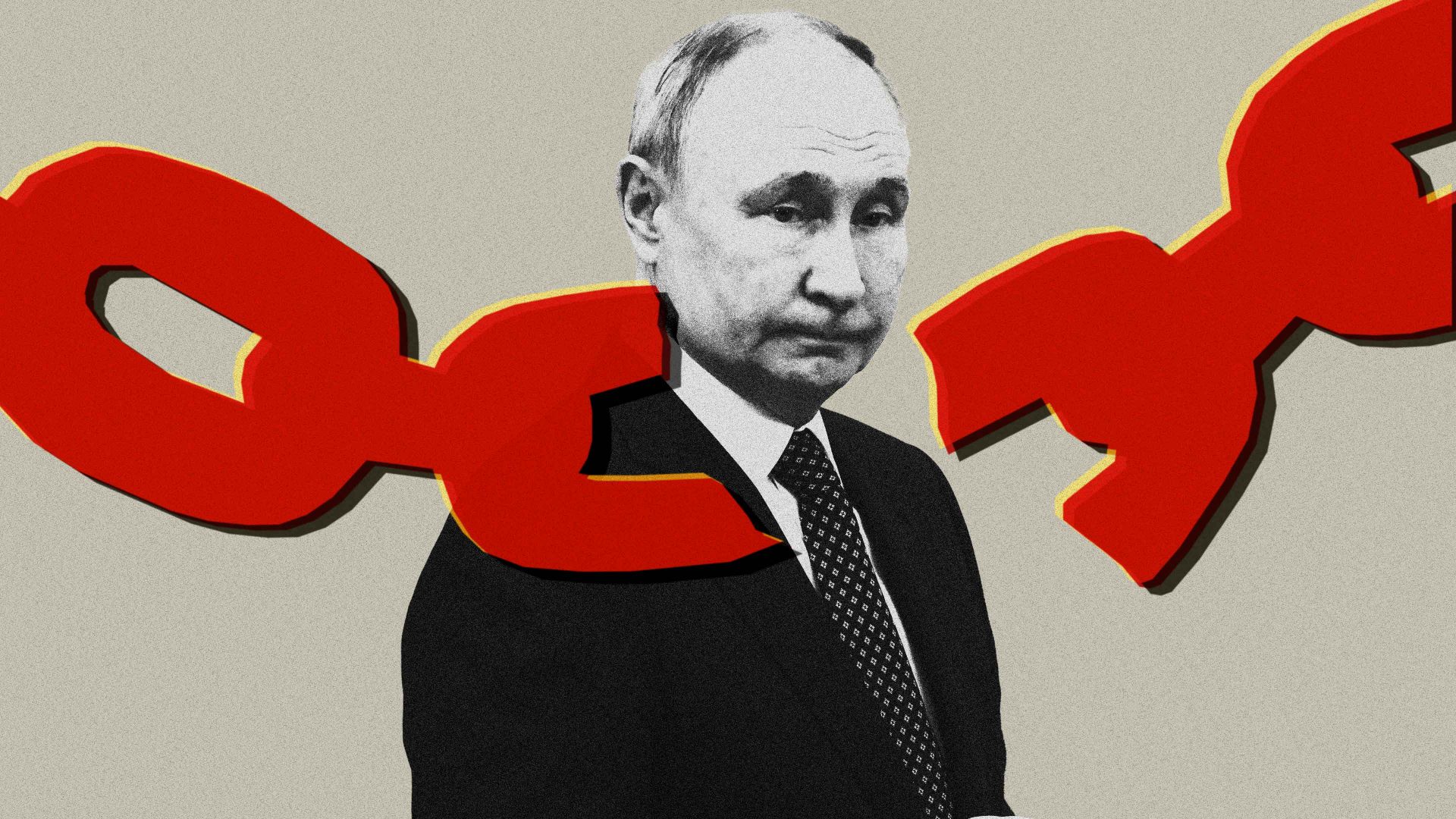Huw Edwards’ admission that he possessed child porn has brought to an end to a long and by no means edifying period when a great many in media circles had heard how the former BBC anchorman was leading a disturbing double life, but had been all too tardy about addressing it.
It was Edwards’ manipulation of vulnerable and less powerful youngsters – often in workplace situations – that was originally the issue, never the former newsreader’s sexuality. I cottoned on to it when corporation journalists I trusted told me how Edwards was inappropriately messaging – indeed harassing – younger junior colleagues but the powers-that-be showed little or no interest in their predicament.
That was why in my play Bloody Difficult Women, first staged in London in spring 2022, I created a character called Huw, married to a woman named Vicky, who endlessly propositioned a younger and emphatically uninterested junior colleague. It was striking how many senior BBC staffers came to see the play and told me after seeing Graham Seed’s performance how I’d said something in drama that no one at that point was daring to say in journalism.
It may not have been obvious that Edwards was a paedophile, but it was certainly obvious that he was duplicitous. It surprised me, after the stories about Edwards first became front-page news last year, how his former BBC colleague Jon Sopel spoke unctuously about what a wonderful, loyal colleague he had always been.
Edwards used to take me out to lunch during my Telegraph days when – between droning on about church architecture – he would viciously brief against colleagues, most notably David Dimbleby, whom he saw as a rival for the big state and political occasions. His line about Dimbleby was that he was “clapped out and past it,” so there was poetic justice that Dimbleby ended up fronting the Remembrance Service after the BBC had suspended Edwards.
Almost 20 years ago, Armando Iannucci included a scene in The Thick of It that referenced “the Huw Edwards rumour,” but nothing came of it. BBC director of journalism Jonathan Munro, a great friend and protector of Edwards before the scandal, has rightly recused himself from all editorial decisions about the coverage of the story, but at some point the editorial grandee will have to explain what he knew and when.
Lord Mandelson confirmed last week in the Spectator what I’d revealed some weeks ago – that he’d discreetly begun a campaign to succeed Lord Patten as chancellor of Oxford University. “Keen observers of the race have noted that 2024 might now be the right time for a Labour candidate to throw their hat in the ring,” Mandelson noted.
Ever the politician, Mandy chose not to mention the other part of my story, that recent bad headlines about the billionaire Hinduja family dissuaded Sir Keir Starmer from considering him as a candidate for the coveted ambassadorship to Washington DC. The last thing Starmer wanted was to resurrect the whole “passport for cash” saga that precipitated Mandelson’s resignation from Tony Blair’s cabinet.
Sensibly, perhaps, Starmer is waiting to see who wins the American election before deciding who Our Man (no woman appears to be in the running) in Washington will be. David Miliband is seen as a dead cert, but that presupposes a Kamala Harris win.
The Daily Telegraph’s take on the disorder sweeping Britain can hardly be helping its drawn-out sale process. Its headline on Monday –“Far-Right clash with Muslims in rioting” – was rightly condemned for making out that Muslims were not the innocent victims of the thugs, and is being seen as a major error by editor Chris Evans. It was described by former Sun editor David Yelland as “one of the most repulsive, inaccurate and frankly embarrassing headlines in the history of the Daily Telegraph. It has appalled many of its own journalists.”
I recall only a tiny handful of Muslims employed by the paper during my 12 years there – I found work on the diary column for a few – but it was, after all, the paper that the Muslim Council of Britain would often have to take to task for columns by Boris Johnson and Lord Charles Moore. The Islamophobia there was institutional.
As the sale plods on, former MailOnline boss Martin Clarke has joined the long list of individuals and organisations to lose interest in putting together a deal to acquire the Telegraph and is now being linked to a high-profile role overseeing the Page Six gossip website which spawned from Rupert Murdoch’s New York Post.
Some staff have been getting excited about news that the wealthy Tory donor and hedge fund veteran Lord Michael Hintze is linking up with the lobbyist Mark Fullbrook, whose roles advising Liz Truss in Downing Street, and, earlier, the disgraced Boris Johnson, were such a success. Hintze, said to be worth £2bn, has taken a near 50% stake in PR outfit Fullbrook Strategies via his Jersey-based SMH Investments.
But while the former hedge fund boss has plenty of cash in addition to clear political views and objectives, I am told he’s much too shrewd an operator and discreet an individual to want to join the remaining motley band of bidders for the increasingly shrill and hysterical Telegraph papers.
Governments may come and go but the machinations within the court of Rupert Murdoch sadly remain as relevant as ever. I am told the appointment of Stephanie Peacock as junior culture secretary – in a department that already has Chris Bryant – has alarmed the nonagenarian tycoon’s UK executives who feel it adds to the number of enemies the media group has within the government.
Last month Sir Keir Starmer dismayed press regulation campaigners when he said he had no plans to revive the second part of the Leveson inquiry into newspaper practices and ethics – there was speculation he had done a pre-election deal with Murdoch – but Peacock is close to Tom Watson, who, like Bryant, has been courageous in the way he has pushed for transparency on issues such as phone-hacking.
Now that Gordon Brown has presented fresh evidence of alleged wrongdoing at the media group to the Metropolitan Police, Watson and Bryant are keen on a further official inquiry, but probably under a new name and terms of reference to get around Starmer’s commitment not to revive Leveson.
The old law of supply and demand means the market in political memoirs has fallen through the floor since the election. Mandrake’s chums in Bloomsbury are heading off for their autumn breaks straining under the weight of book proposals from ousted Tory MPs that they’re going to have to go through as they sit on beaches around the world.
Jeremy Hunt, the former chancellor, may therefore be taking a lot for granted in setting up an outfit called Sussex Street Speaking and Publishing and stating its nature of business is “book publishing.” Ominously, the new venture went live at Companies House on the same day Rachel Reeves, his successor at the Treasury, accused him of covering up a £20bn black hole in the nation’s finances.




